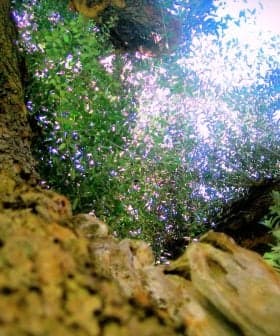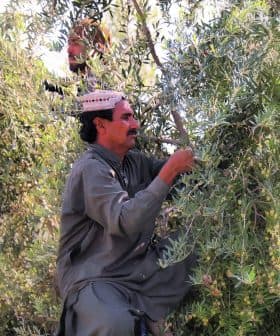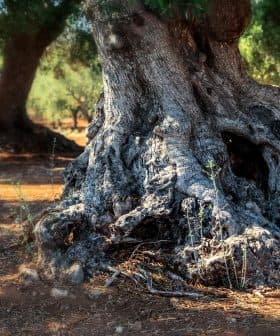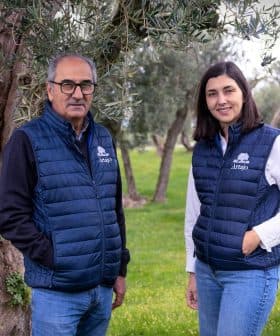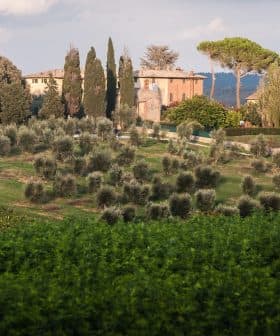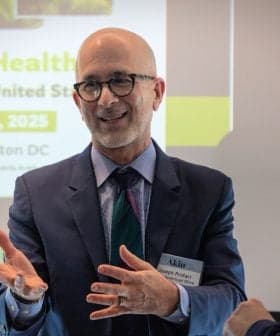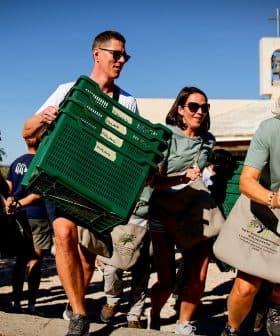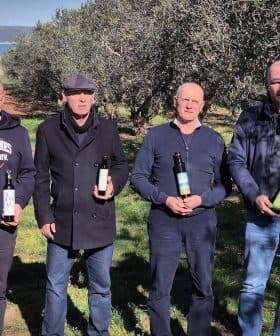Cooperative in Calabria Offers Much More Than Good Olive Oil
The Nelson Mandela Social Cooperative produces high-quality extra virgin olive oil and promotes the social inclusion of refugees.
 Nelson Mandela Social Cooperative
Nelson Mandela Social CooperativeThe Nelson Mandela Social Cooperative, founded in 2017 in Gioiosa Ionica, aims to promote ethical employment for young and disadvantaged people by focusing on high-quality agriculture. Through their self-financed project, the cooperative hosts and hires refugees in Italy, produces high-quality organic extra virgin olive oil, and promotes economic and social integration in the region. The cooperative’s mission emphasizes inclusion, integration, and solidarity, with a focus on dignity, legality, and respect for human rights.
The Nelson Mandela Social Cooperative was founded in 2017 in Gioiosa Ionica, in the province of Reggio Calabria, by a group of local development experts, social workers and cultural operators with the aim of promoting the ethical employment of young and disadvantaged people.
“Our vision is to build up a path of participation, sharing, presence on the territory and development from below,” Maurizio Zavaglia, city manager and cooperative co-founder, told Olive Oil Times.
When you use our extra virgin olive oil, you can feel the taste of high quality and the perfume of solidarity and social justice.
“We created a social cooperative focused on high-quality agriculture, through which we can contribute concretely to supporting and promoting this area, that has many resources but is characterized by high unemployment, especially among young people,” he added.
To do this, their activities are directed to the neediest, Zavaglia said. “Especially refugees, migrants, those who run away from wars, conflicts, atrocities, tribulation, drought and then have to risk their lives at sea in search of a better living prospect.”
See Also:Producer ProfilesIn recent years, millions of people fleeing war, famine and human rights violations in their countries — including Syria, Iraq, Yemen, the Democratic Republic of the Congo, South Sudan and other areas of the world — have attempted to reach Europe via the Mediterranean Sea.
In search of better living conditions, these refugees have embarked on treacherous, desperate journeys, which often have deadly consequences. Since 2013, about 20,000 people lost their lives during these voyages of hope.
Meanwhile, the southern coasts and borders of Italy, Greece and Spain have witnessed the arrival of thousands of survivors, many of whom have been helped by non-governmental organizations, state institutions and volunteers.
The cooperative hosted and hired recently-arrived refugees in Italy through Humanitarian Corridors — a program launched in 2015 with the collaboration of religious organizations of different denominations (the Community of Sant’Egidio, with the Federation of Evangelical Churches in Italy, the Waldensian Table) and the Italian government — which makes it possible to issue visas for people in conditions of particular vulnerability, allowing them to reach Italy safely.
“The project is fully self-financed, we don’t use public resources and, therefore, the only way to get ahead with our objectives of promoting this territory and enhancing economic and social integration is to be competitive on the market, carrying on high-quality farming,” Zavaglia said.
About 500 olive trees, interspersed with citrus trees, are scattered over a 20-hectare (49.4‑acre) farm lying on gentle hills sloping down to the Torbido valley, where the presence of a river fertilizes the soil and favors lush vegetation.
This good land assists the Nelson Mandela members in producing a high-quality organic extra virgin olive oil, with zero environmental impact, as production of sustainable and healthy products became an unmissable strongpoint of their mission.
“We want to help people to build a life plan,” Zavaglia said, adding that often, even the best experiences of hospitality are concluded when necessary documents are obtained by the guests.
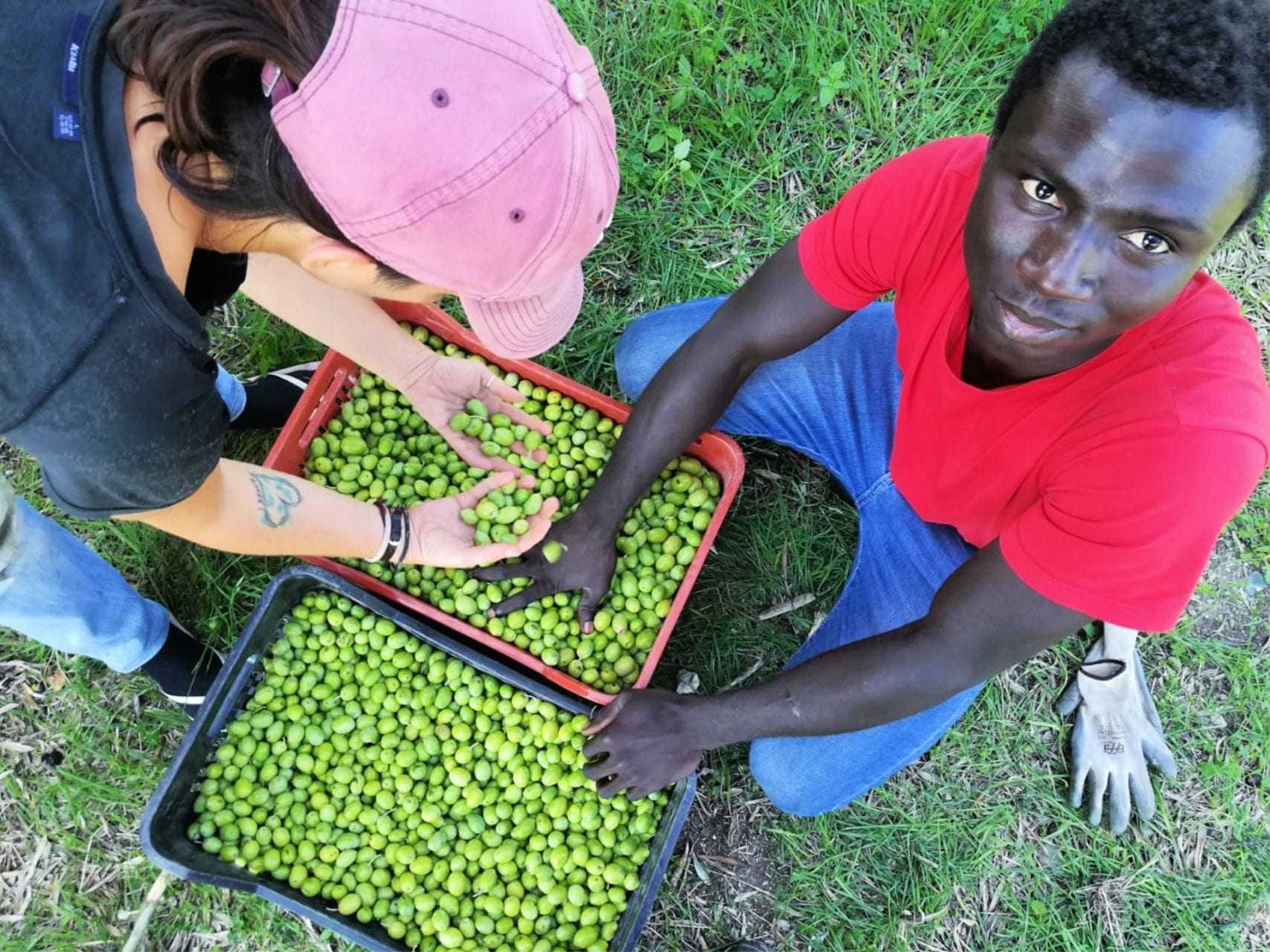
“We realized that, instead, inclusion and integration in the territory through work are possible,” he said. “With the vision of supporting people who emigrate in search of a better life, as well as that of the youth of the local community, we walk hand in hand following a path of solidarity… along which are built opportunities of dignity legality, and respect of human rights.”
With these premises, they have recently started to welcome other beneficiaries of international protection, who are at risk of illegal employment.
“The most deprived people are at risk of labor exploitation,” Zavaglia said. “It is our task to protect them from the threat of gang mastering. Here, their lives have changed, they are happy to cooperate with us, and their work becomes valuable and essential for the Nelson Mandela productions.”
The group currently consists of 15 people, which include cooperative members, two volunteers, two trainees and other collaborators during the tourist season, while other members are about to join.
Ten people are involved in the production of three monovarietals, obtained from both secular and young plants of the Nocellara Messinese, Carolea and Geracese varieties, the latter of which is typical of the area.
Thanks to a pruning system that favors the growth of the low branches of the trees the harvest is easy and very safe.
Fruits are picked in early October and delivered within a few hours to the mill, in order to obtain a product with high chemical and organoleptic properties which is distributed in Italy and abroad through ethical purchasing groups, fair trade circuits and other channels of the social economy based on responsible consumption.
At the end of the extra virgin olive oil production in November, in order to ensure employment continuity, the operators start to work mainly in the citrus orchard. In March, they return to the olive grove for pruning, which keeps them busy throughout the spring. Following this, the participants will begin to prepare the tourist accommodations managed by the cooperative, Villa Santa Maria, for the summer.
“We belong to civil society and, alongside many other people in Calabria, we work to make things better with tenacity and determination,” Zavaglia said.
“Legality, inclusion, acceptance, development, sustainability, and respect for human beings are the reference points of the Nelson Mandela Cooperative. When you use our extra virgin olive oil, you can feel the taste of high quality and the perfume of solidarity and social justice.”


